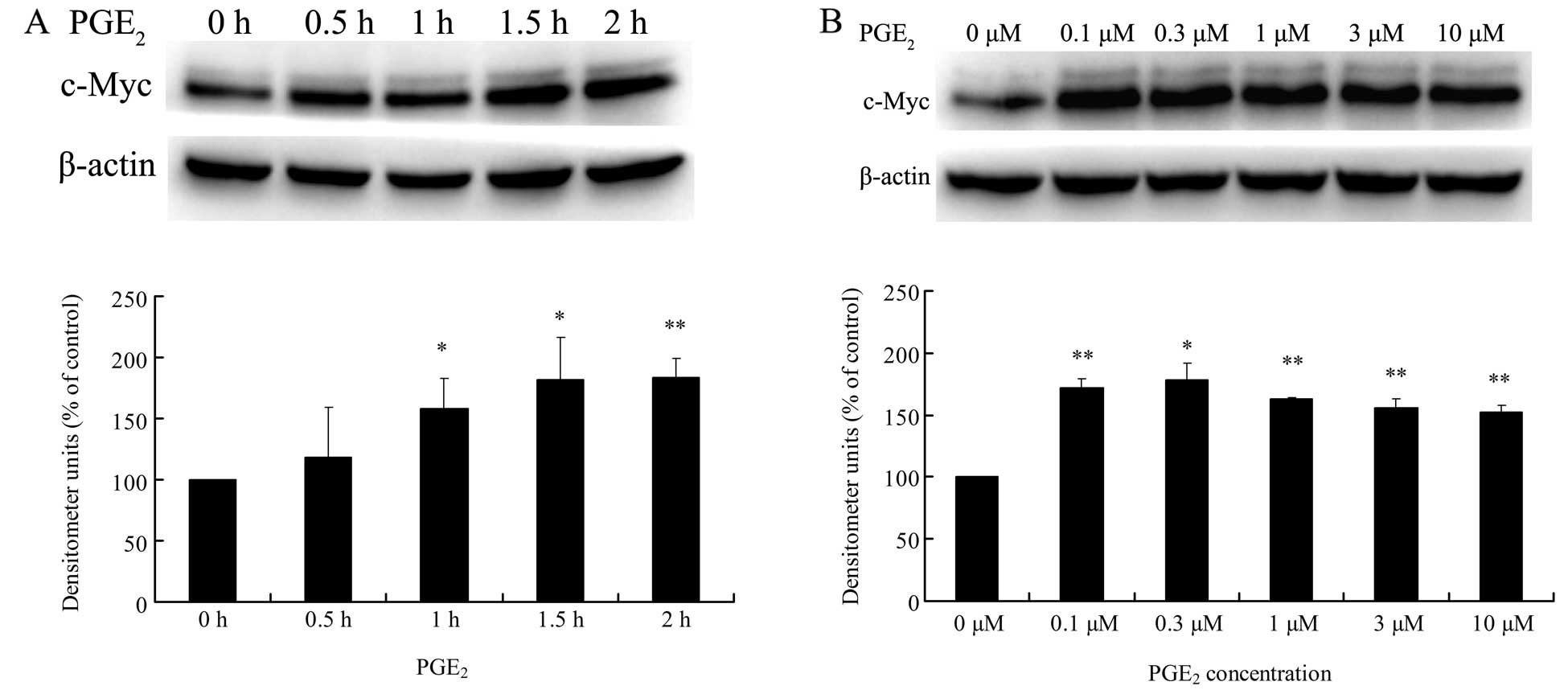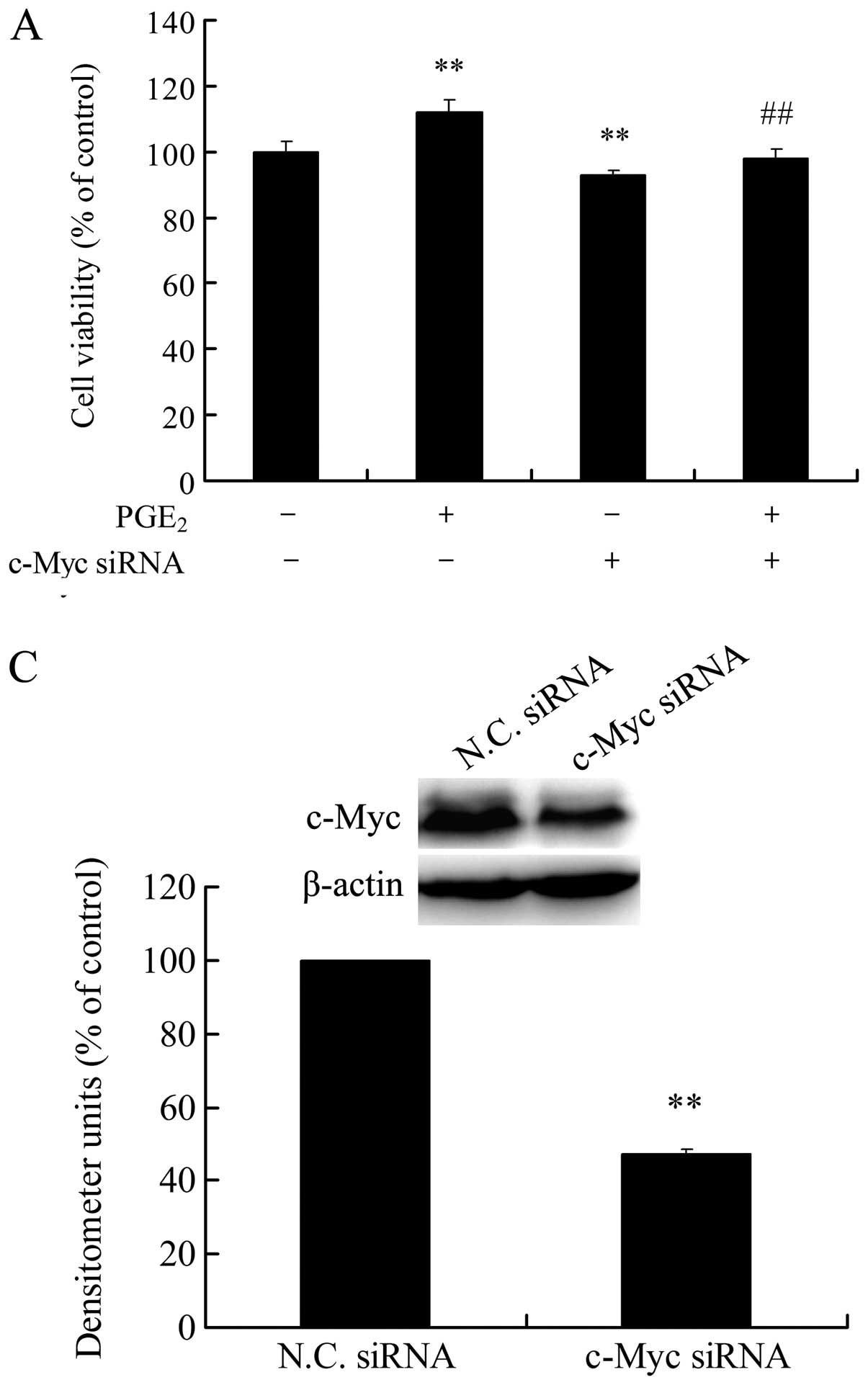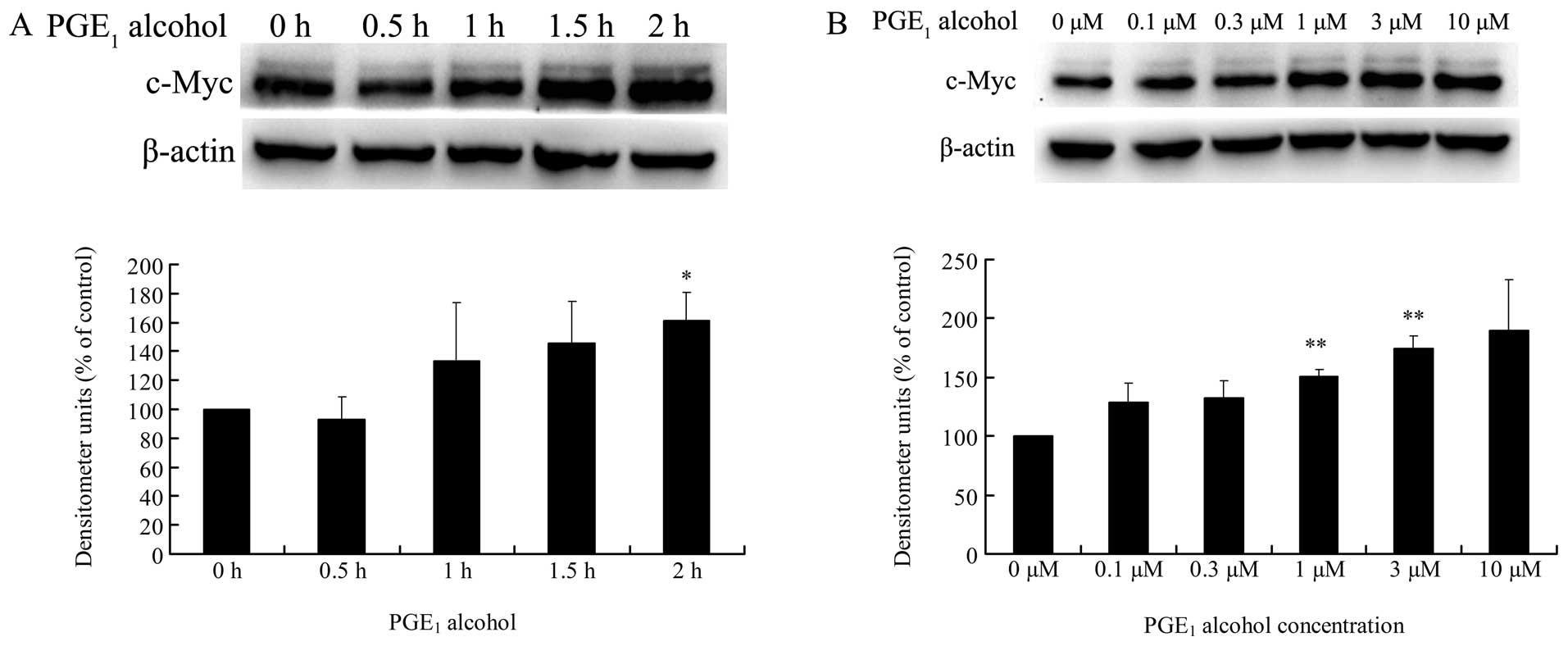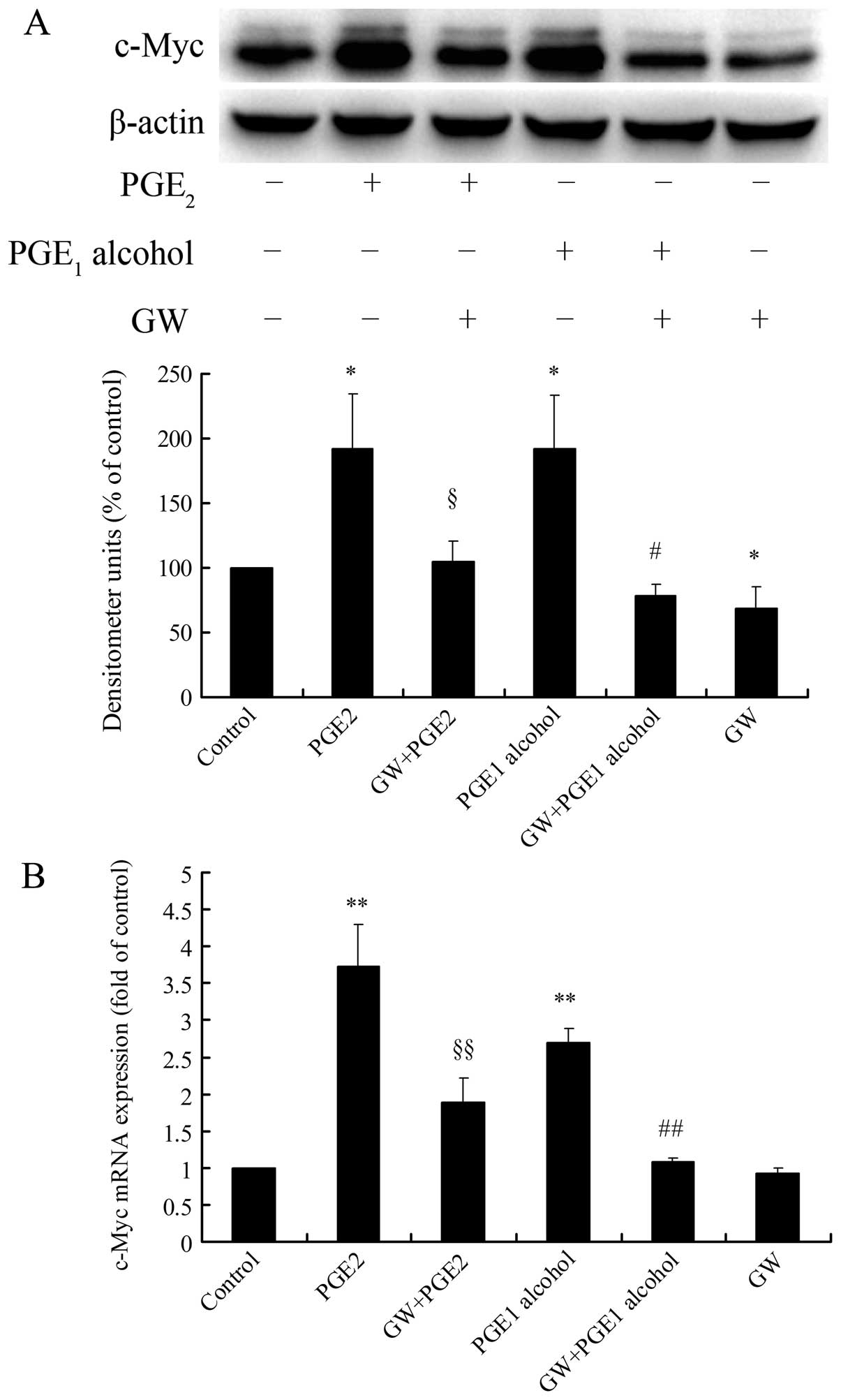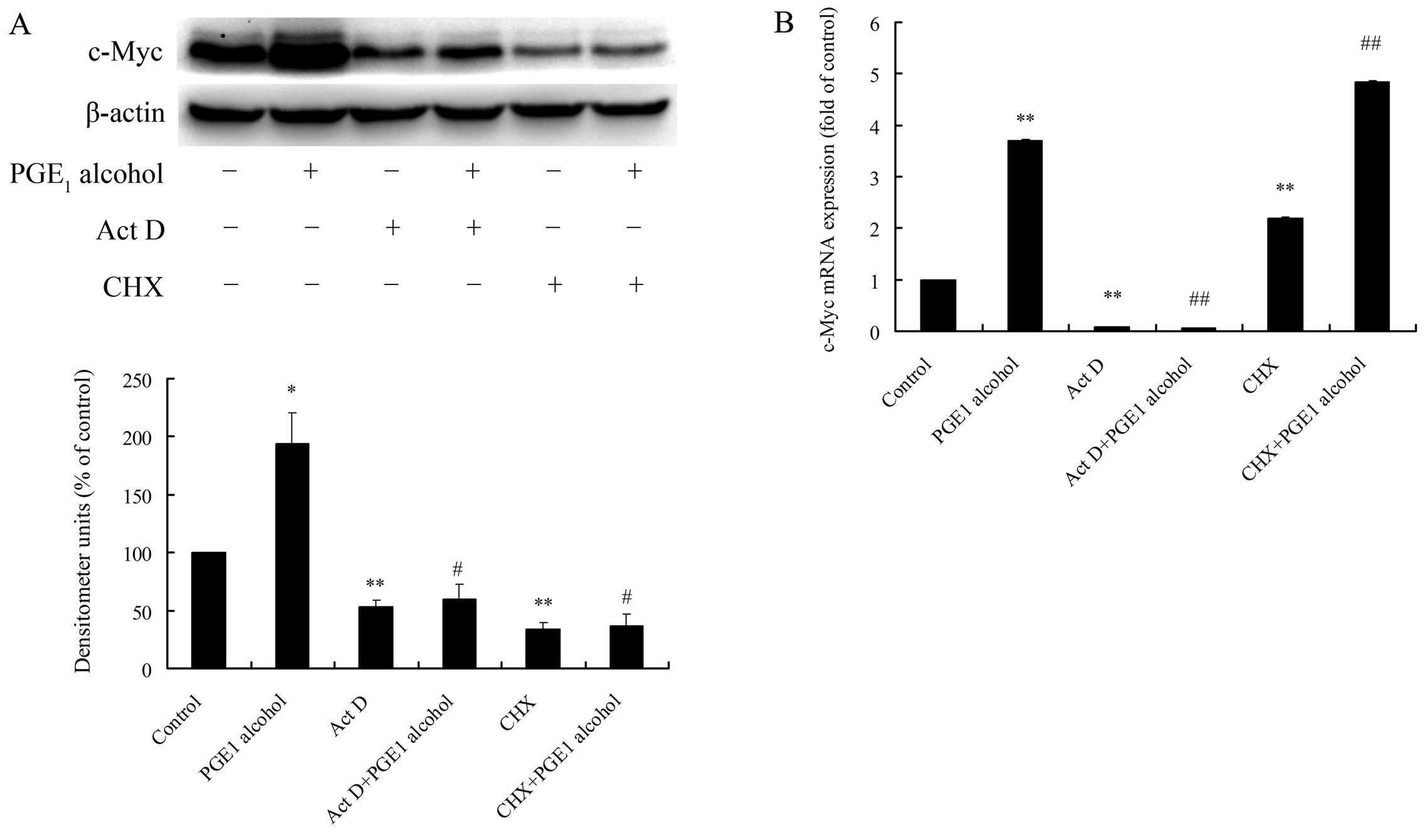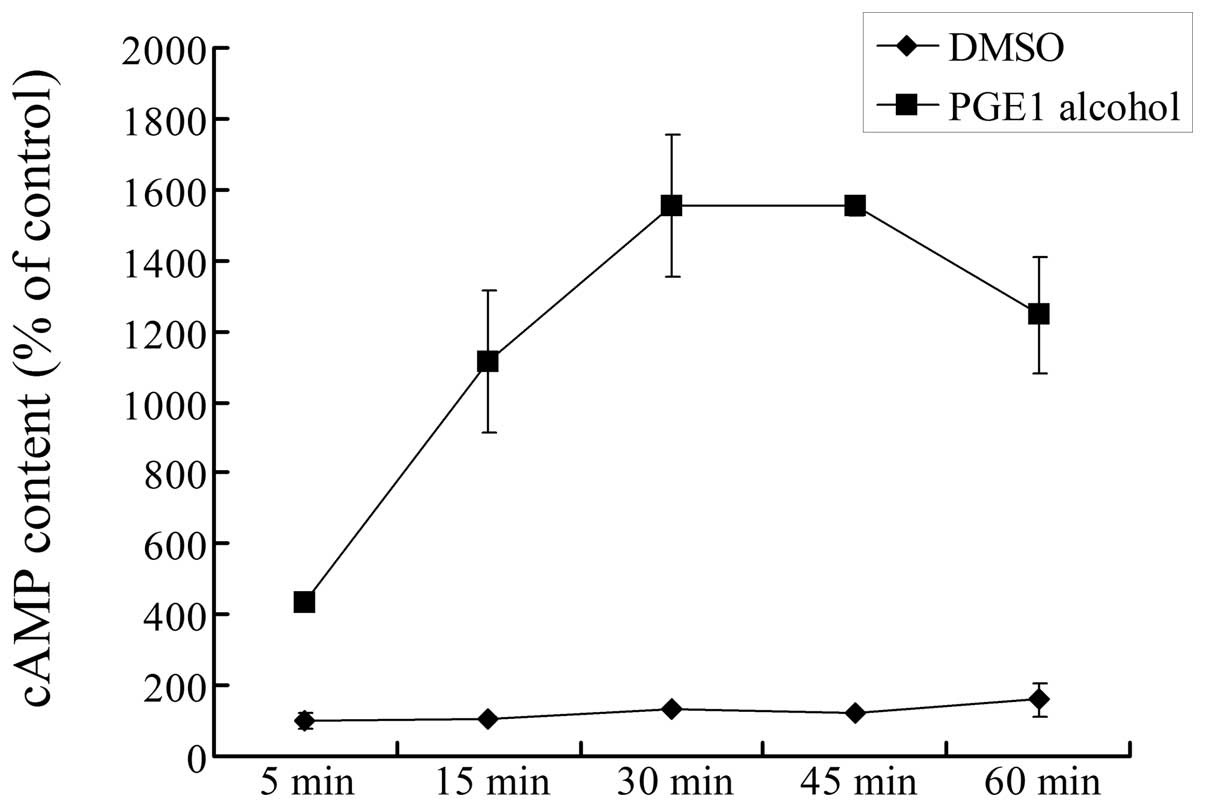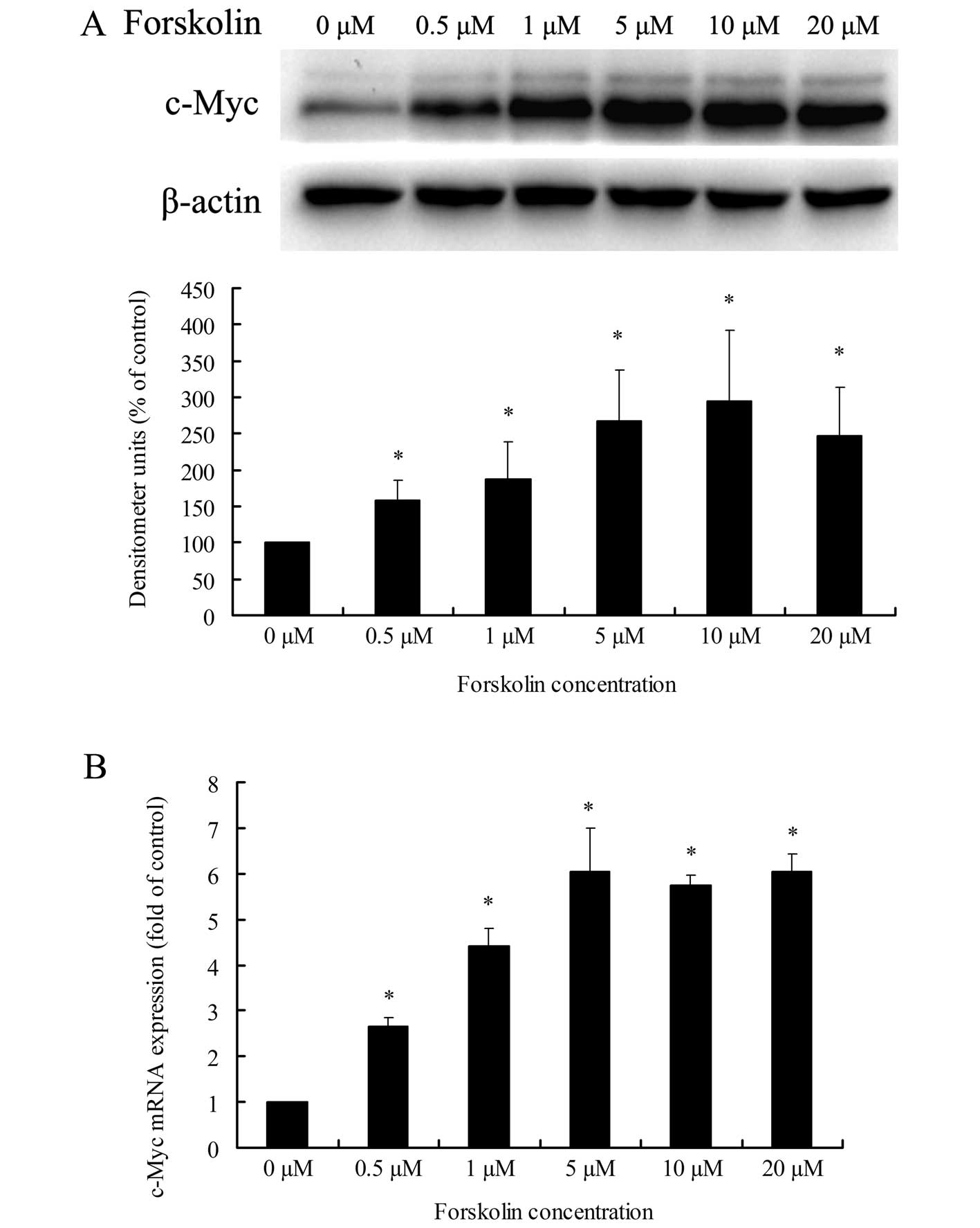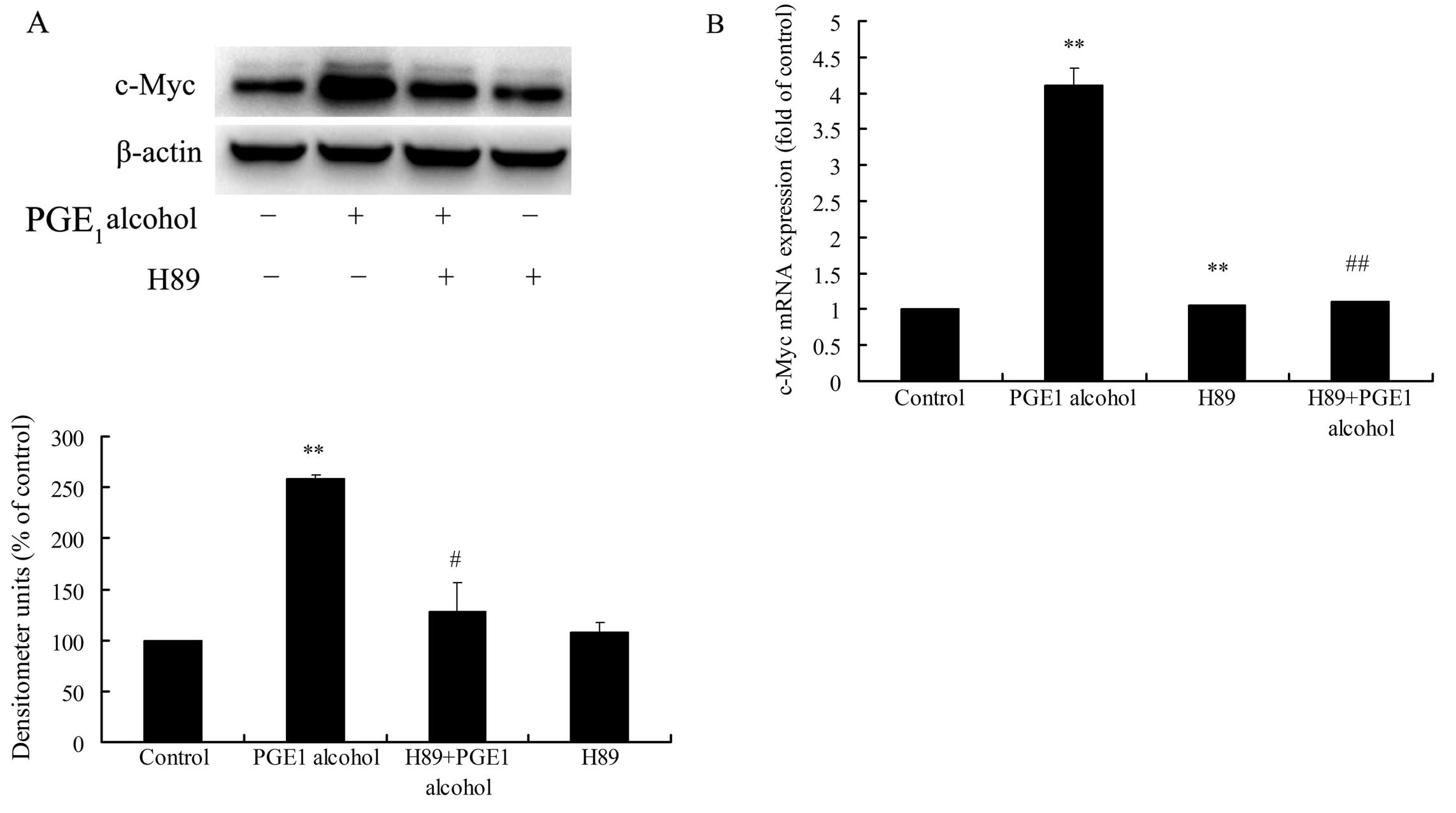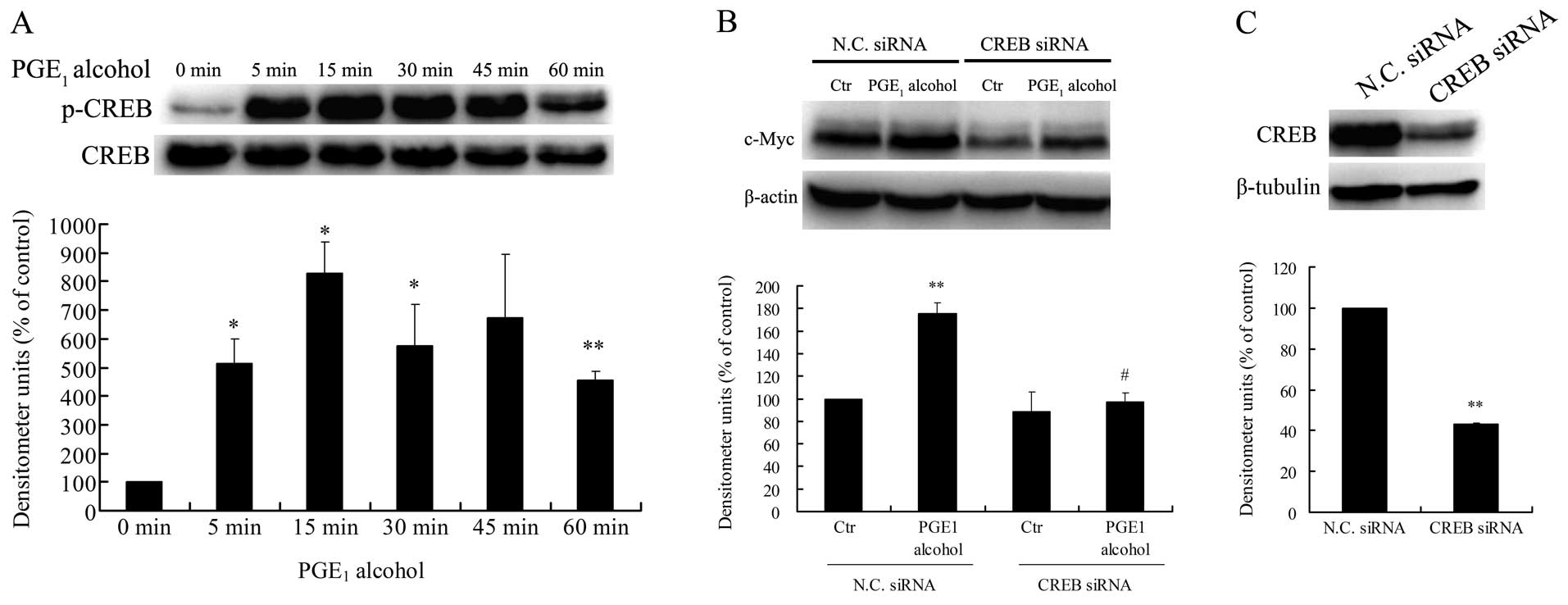|
1
|
Jemal A, Bray F, Center MM, Ferlay J, Ward
E and Forman D: Global cancer statistics. CA Cancer J Clin.
61:69–90. 2011. View Article : Google Scholar
|
|
2
|
Nakagawa H and Maeda S: Inflammation- and
stress-related signaling pathways in hepatocarcinogenesis. World J
Gastroenterol. 18:4071–4081. 2012. View Article : Google Scholar : PubMed/NCBI
|
|
3
|
Ramakrishna G, Rastogi A, Trehanpati N,
Sen B, Khosla R and Sarin SK: From cirrhosis to hepatocellular
carcinoma: new molecular insights on inflammation and cellular
senescence. Liver Cancer. 2:367–383. 2013. View Article : Google Scholar : PubMed/NCBI
|
|
4
|
Berasain C, Castillo J, Perugorria MJ,
Latasa MU, Prieto J and Avila MA: Inflammation and liver cancer:
new molecular links. Ann NY Acad Sci. 1155:206–221. 2009.
View Article : Google Scholar : PubMed/NCBI
|
|
5
|
Hata AN and Breyer RM: Pharmacology and
signaling of prostaglandin receptors: multiple roles in
inflammation and immune modulation. Pharmacol Ther. 103:147–166.
2004. View Article : Google Scholar : PubMed/NCBI
|
|
6
|
Wang D and Dubois RN: Prostaglandins and
cancer. Gut. 55:115–122. 2006. View Article : Google Scholar
|
|
7
|
Legler DF, Bruckner M, Uetz-von Allmen E
and Krause P: Prostaglandin E2 at new glance: novel
insights in functional diversity offer therapeutic chances. Int J
Biochem Cell Biol. 42:198–201. 2010.
|
|
8
|
Rizzo MT: Cyclooxygenase-2 in oncogenesis.
Clin Chim Acta. 412:671–687. 2011. View Article : Google Scholar : PubMed/NCBI
|
|
9
|
Mayoral R, Fernández-Martínez A, Boscá L
and Martín-Sanz P: Prostaglandin E2 promotes migration
and adhesion in hepatocellular carcinoma cells. Carcinogenesis.
26:753–761. 2005.PubMed/NCBI
|
|
10
|
Leng J, Han C, Demetris AJ, Michalopoulos
GK and Wu T: Cyclooxygenase-2 promotes hepatocellular carcinoma
cell growth through Akt activation: evidence for Akt inhibition in
celecoxib-induced apoptosis. Hepatology. 38:756–768. 2003.
View Article : Google Scholar : PubMed/NCBI
|
|
11
|
Ma J, Chen M, Xia SK, et al: Prostaglandin
E2 promotes liver cancer cell growth by the upregulation
of FUSE-binding protein 1 expression. Int J Oncol. 42:1093–1104.
2013.
|
|
12
|
Bai XM, Zhang W, Liu NB, et al: Focal
adhesion kinase: Important to prostaglandin E2-mediated
adhesion, migration and invasion in hepatocellular carcinoma cells.
Oncol Rep. 21:129–136. 2009.PubMed/NCBI
|
|
13
|
Bai X, Wang J, Zhang L, et al:
Prostaglandin E2 receptor EP1-mediated phosphorylation
of focal adhesion kinase enhances cell adhesion and migration in
hepatocellular carcinoma cells. Int J Oncol. 42:1833–1841.
2013.
|
|
14
|
Reader J, Holt D and Fulton A:
Prostaglandin E2 EP receptors as therapeutic targets in
breast cancer. Cancer Metastasis Rev. 30:449–463. 2011.
|
|
15
|
Timoshenko AV, Xu G, Chakrabarti S, Lala
PK and Chakraborty C: Role of prostaglandin E2 receptors
in migration of murine and human breast cancer cells. Exp Cell Res.
289:265–274. 2003.PubMed/NCBI
|
|
16
|
Wu WK, Sung JJ, Lee CW, Yu J and Cho CH:
Cyclooxygenase-2 in tumorigenesis of gastrointestinal cancers: an
update on the molecular mechanisms. Cancer Lett. 295:7–16. 2010.
View Article : Google Scholar : PubMed/NCBI
|
|
17
|
Jain S, Chakraborty G, Raja R, Kale S and
Kundu GC: Prostaglandin E2 regulates tumor angiogenesis
in prostate cancer. Cancer Res. 68:7750–7759. 2008.
|
|
18
|
Sugimoto Y and Narumiya S: Prostaglandin E
receptors. J Biol Chem. 282:11613–11617. 2007. View Article : Google Scholar : PubMed/NCBI
|
|
19
|
Wu J, Zhang Y, Frilot N, Kim JI, Kim WJ
and Daaka Y: Prostaglandin E2 regulates renal cell
carcinoma invasion through the EP4 receptor-Rap GTPase signal
transduction pathway. J Biol Chem. 286:33954–33962. 2011.
|
|
20
|
Chandramouli A, Mercado-Pimentel ME,
Hutchinson A, et al: The induction of S100p expression by the
Prostaglandin E2 (PGE2)/EP4 receptor
signaling pathway in colon cancer cells. Cancer Biol Ther.
10:1056–1066. 2010. View Article : Google Scholar : PubMed/NCBI
|
|
21
|
Kim JI, Lakshmikanthan V, Frilot N and
Daaka Y: Prostaglandin E2 promotes lung cancer cell
migration via EP4-βArrestin1-c-Src signalsome. Mol Cancer Res.
8:569–577. 2010.
|
|
22
|
Oshima H, Popivanova BK, Oguma K, Kong D,
Ishikawa TO and Oshima M: Activation of epidermal growth factor
receptor signaling by the prostaglandin E2 receptor EP4
pathway during gastric tumorigenesis. Cancer Sci. 102:713–719.
2011. View Article : Google Scholar : PubMed/NCBI
|
|
23
|
Robertson FM, Simeone AM, Mazumdar A, et
al: Molecular and pharmacological blockade of the EP4 receptor
selectively inhibits both proliferation and invasion of human
inflammatory breast cancer cells. J Exp Ther Oncol. 7:299–312.
2008.PubMed/NCBI
|
|
24
|
Zender L, Villanueva A, Tovar V, Sia D,
Chiang DY and Llovet JM: Cancer gene discovery in hepatocellular
carcinoma. J Hepatol. 52:921–929. 2010. View Article : Google Scholar : PubMed/NCBI
|
|
25
|
Levens D: You don’t muck with MYC. Genes
Cancer. 1:547–554. 2010.
|
|
26
|
Dang CV: MYC on the path to cancer.
Cell. 149:22–35. 2012. View Article : Google Scholar
|
|
27
|
Kawate S, Fukusato T, Ohwada S, Watanuki A
and Morishita Y: Amplification of c-myc in hepatocellular
carcinoma: correlation with clinicopathologic features,
proliferative activity and p53 overexpression. Oncology.
57:157–163. 1999.
|
|
28
|
Chan KL, Guan XY and Ng IO:
High-throughput tissue microarray analysis of c-myc
activation in chronic liver diseases and hepatocellular carcinoma.
Hum Pathol. 35:1324–1331. 2004. View Article : Google Scholar : PubMed/NCBI
|
|
29
|
Kaposi-Novak P, Libbrecht L, Woo HG, et
al: Central role of c-Myc during malignant conversion in human
hepatocarcinogenesis. Cancer Res. 69:2775–2782. 2009. View Article : Google Scholar : PubMed/NCBI
|
|
30
|
Fimia GM and Sassone-Corsi P: Cyclic AMP
signalling. J Cell Sci. 114:1971–1972. 2001.PubMed/NCBI
|
|
31
|
Han C, Michalopoulos GK and Wu T:
Prostaglandin E2 receptor EP1 transactivates
EGFR/MET receptor tyrosine kinases and enhances invasiveness in
human hepatocellular carcinoma cells. J Cell Physiol. 207:261–270.
2006.
|
|
32
|
Higgs MR, Lerat H and Pawlotsky JM:
Hepatitis C virus-induced activation of β-catenin promotes c-Myc
expression and a cascade of pro-carcinogenetic events. Oncogene.
32:4683–4693. 2013.
|
|
33
|
Iizuka N, Tsunedomi R, Tamesa T, et al:
Involvement of c-myc-regulated genes in hepatocellular carcinoma
related to genotype-C hepatitis B virus. J Cancer Res Clin Oncol.
132:473–481. 2006. View Article : Google Scholar : PubMed/NCBI
|
|
34
|
Tashiro F, Morimura S, Hayashi K, et al:
Expression of the c-Ha-ras and c-myc genes in aflatoxin B1-induced
hepatocellular carcinomas. Biochem Biophys Res Commun. 138:858–864.
1986. View Article : Google Scholar : PubMed/NCBI
|
|
35
|
Junttila MR and Westermarck J: Mechanisms
of MYC stabilization in human malignancies. Cell Cycle. 7:592–596.
2008. View Article : Google Scholar : PubMed/NCBI
|
|
36
|
Yu L, Wu WK, Li ZJ, Li HT, Wu YC and Cho
CH: Prostaglandin E2 promotes cell proliferation
via protein kinase C/extracellular signal regulated kinase
pathway-dependent induction of c-Myc expression in human esophageal
squamous cell carcinoma cells. Int J Cancer. 125:2540–2546.
2009.PubMed/NCBI
|
|
37
|
Jang MW, Yun SP, Park JH, Ryu JM, Lee JH
and Han HJ: Cooperation of Epac1/Rap1/Akt and PKA in prostaglandin
E2-induced proliferation of human umbilical cord blood
derived mesenchymal stem cells: involvement of c-Myc and VEGF
expression. J Cell Physiol. 227:3756–3767. 2012.PubMed/NCBI
|
|
38
|
Cheng X, Ji Z, Tsalkova T and Mei F: Epac
and PKA: a tale of two intracellular cAMP receptors. Acta Biochim
Biophys Sin. 40:651–662. 2008. View Article : Google Scholar : PubMed/NCBI
|
|
39
|
Sands WA and Palmer TM: Regulating gene
transcription in response to cyclic AMP elevation. Cell Signal.
20:460–466. 2008. View Article : Google Scholar : PubMed/NCBI
|
|
40
|
Mayr B and Montminy M: Transcriptional
regulation by the phosphorylation-dependent factor CREB. Nat Rev
Mol Cell Biol. 2:599–609. 2001. View Article : Google Scholar : PubMed/NCBI
|
|
41
|
Wierstra I and Alves J: The c-myc
promoter: still MysterY and challenge. Adv Cancer Res. 99:113–333.
2008.
|















